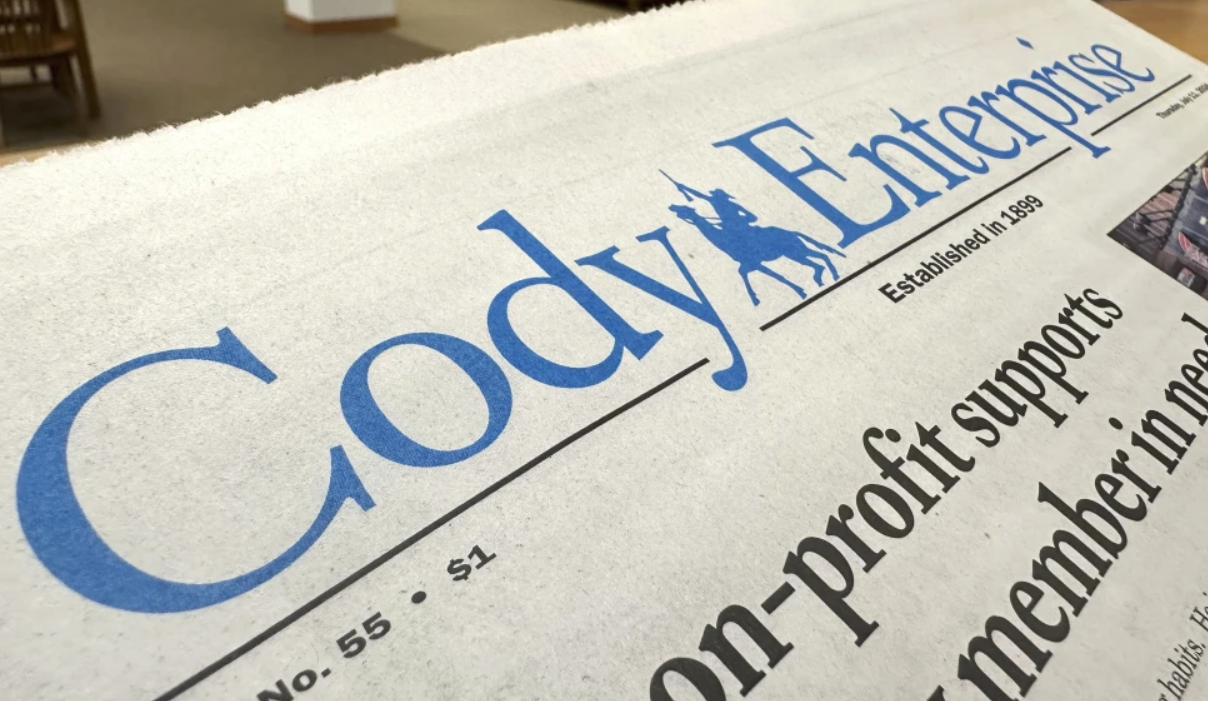
Reporter faces scrutiny over AI-generated content in news articles
The use of generative artificial intelligence (AI) by a reporter from the Cody Enterprise has come to light, raising concerns about the integrity of journalism. Powell Tribune reporter CJ Baker first noticed something was amiss when quotes from Wyoming’s governor and a local prosecutor in a competitor’s articles seemed slightly off. The robotic phrasing in several stories only heightened his suspicions. The tipping point came in a June 26 article about comedian Larry the Cable Guy being chosen as the grand marshal for a local parade. The piece concluded with an unnecessary explanation of the "inverted pyramid," a basic journalism technique, which Baker identified as a red flag. After investigating, Baker met with Aaron Pelczar, a 40-year-old newcomer to journalism who admitted to using AI to help write his stories. Pelczar resigned shortly thereafter. The Cody Enterprise, founded in 1899 by Buffalo Bill Cody, has since apologized for the incident. In an editorial, Editor Chris Bacon admitted that AI-generated quotes and content had slipped through, acknowledging his failure to catch the errors. During the meeting, Pelczar said, “Obviously I’ve never intentionally tried to misquote anybody” and promised to “correct them and issue apologies and say they are misstatements,” Baker wrote, noting that Pelczar insisted his mistakes shouldn’t reflect on his Cody Enterprise editors. Another story — about a poaching sentencing — included quotes from a wildlife official and a prosecutor that sounded like they came from a news release, Baker said. However, there wasn’t a news release and the agencies involved didn’t know where the quotes had come from, he said. The Cody Enterprise, which lacked an AI policy, discovered seven articles containing AI-generated quotes attributed to six individuals. Although the quotes were believable, the people quoted denied ever speaking to Pelczar. Pelczar has declined to comment further on the matter. “These generative AI chatbots are programmed to give you an answer, no matter whether that answer is complete garbage or not,” Director of a digital media literacy project at the Poynter Institute, Mahadevan said. However, the scandal highlights the dangers AI poses to journalism, as chatbots can generate seemingly plausible articles with fabricated quotes. The Associated Press and other news outlets have used AI to automate certain tasks, but they are transparent about its role, and generative AI is not permitted to create publishable content. The use of AI in journalism is under increased scrutiny, with newsrooms encouraged to establish clear policies. Megan Barton, the publisher of the Cody Enterprise, compared AI to a new form of plagiarism and announced that the newspaper will implement measures to detect AI-generated content. Bacon, who took over as editor in May, plans to establish an AI policy by the end of the week to prevent such incidents in the future.

The use of generative artificial intelligence (AI) by a reporter from the Cody Enterprise has come to light, raising concerns about the integrity of journalism. Powell Tribune reporter CJ Baker first noticed something was amiss when quotes from Wyoming’s governor and a local prosecutor in a competitor’s articles seemed slightly off. The robotic phrasing in several stories only heightened his suspicions. The tipping point came in a June 26 article about comedian Larry the Cable Guy being chosen as the grand marshal for a local parade. The piece concluded with an unnecessary explanation of the "inverted pyramid," a basic journalism technique, which Baker identified as a red flag. After investigating, Baker met with Aaron Pelczar, a 40-year-old newcomer to journalism who admitted to using AI to help write his stories. Pelczar resigned shortly thereafter. The Cody Enterprise, founded in 1899 by Buffalo Bill Cody, has since apologized for the incident. In an editorial, Editor Chris Bacon admitted that AI-generated quotes and content had slipped through, acknowledging his failure to catch the errors. During the meeting, Pelczar said, “Obviously I’ve never intentionally tried to misquote anybody” and promised to “correct them and issue apologies and say they are misstatements,” Baker wrote, noting that Pelczar insisted his mistakes shouldn’t reflect on his Cody Enterprise editors. Another story — about a poaching sentencing — included quotes from a wildlife official and a prosecutor that sounded like they came from a news release, Baker said. However, there wasn’t a news release and the agencies involved didn’t know where the quotes had come from, he said. The Cody Enterprise, which lacked an AI policy, discovered seven articles containing AI-generated quotes attributed to six individuals. Although the quotes were believable, the people quoted denied ever speaking to Pelczar. Pelczar has declined to comment further on the matter. “These generative AI chatbots are programmed to give you an answer, no matter whether that answer is complete garbage or not,” Director of a digital media literacy project at the Poynter Institute, Mahadevan said. However, the scandal highlights the dangers AI poses to journalism, as chatbots can generate seemingly plausible articles with fabricated quotes. The Associated Press and other news outlets have used AI to automate certain tasks, but they are transparent about its role, and generative AI is not permitted to create publishable content. The use of AI in journalism is under increased scrutiny, with newsrooms encouraged to establish clear policies. Megan Barton, the publisher of the Cody Enterprise, compared AI to a new form of plagiarism and announced that the newspaper will implement measures to detect AI-generated content. Bacon, who took over as editor in May, plans to establish an AI policy by the end of the week to prevent such incidents in the future.
